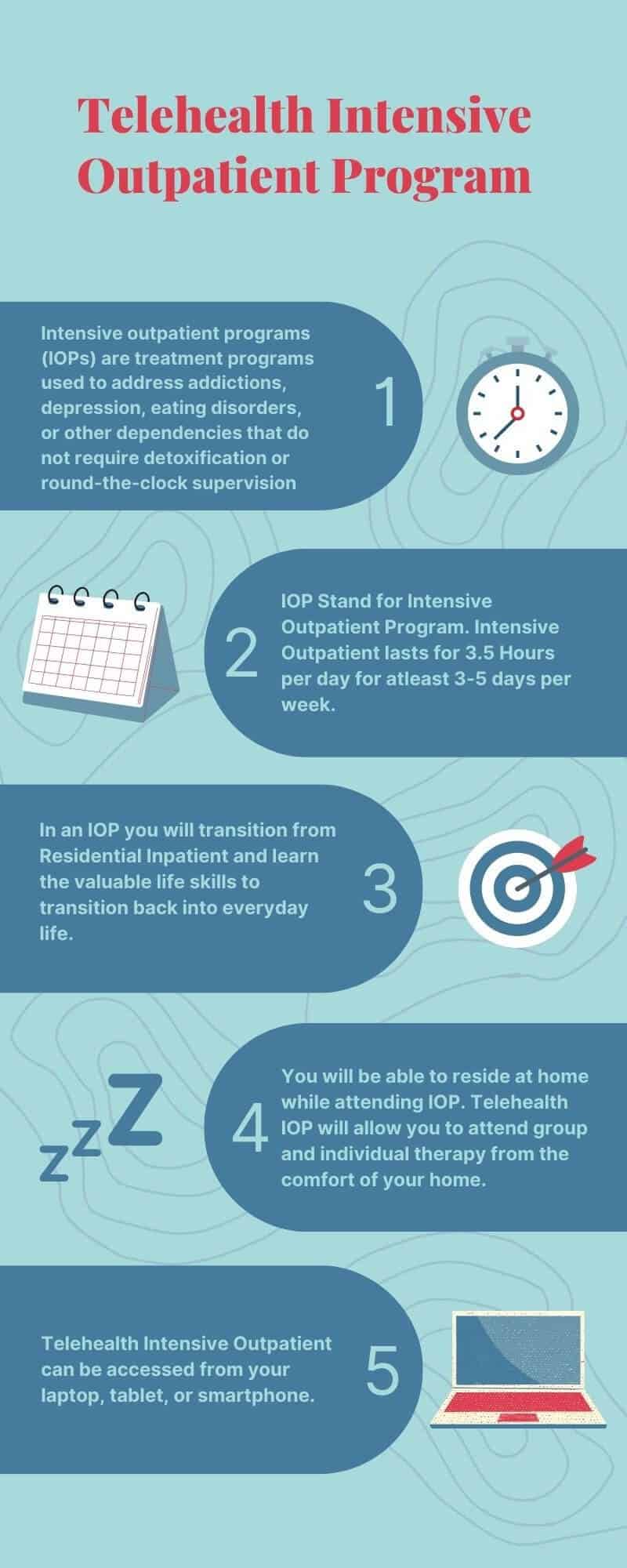Why an Intensive Outpatient Program (IOP) is Important for Long Lasting Healing.
Why an Intensive Outpatient Program (IOP) is Important for Long Lasting Healing.
Blog Article
Navigating the Intricacies of Dual Medical Diagnosis Treatment Within an Extensive Outpatient Program Setting
In the world of psychological health and addiction treatment, the intersection of double diagnosis provides a nuanced obstacle that requires an extensive and tailored technique. By discovering the details of double medical diagnosis therapy within this intensive outpatient context, a more clear course arises in the direction of holistic and lasting recuperation for those grappling with these linked challenges.
Twin Diagnosis Review

Comprehending dual medical diagnosis is vital as it requires a detailed and integrated technique to treatment. By recognizing the interplay between material usage and psychological health, doctor can customize treatments to meet the one-of-a-kind requirements of each individual. This all natural method not only addresses signs and symptoms however likewise targets underlying factors that add to the double diagnosis.
In addition, without treatment double diagnosis can result in a cycle of relapse and aggravating mental wellness signs. By identifying the complexity of twin diagnosis and providing specific treatment, healthcare experts can sustain people in achieving long-term recuperation and enhanced psychological well-being.
Tailored Therapy Strategies
Acknowledging the detailed interaction in between substance usage problems and mental health and wellness conditions, the development of customized treatment strategies is paramount in dealing with the complexities of double medical diagnosis in psychological wellness therapy. Customized therapy strategies are individualized strategies that take into consideration the one-of-a-kind requirements, difficulties, and goals of individuals encountering twin medical diagnosis. These plans are designed collaboratively by a multidisciplinary team of specialists, consisting of psychiatrists, psychologists, social workers, and dependency professionals, to make certain thorough and incorporated treatment.
Tailored treatment plans usually include a combination of therapies, drugs, and behavior treatments that target both the material usage disorder and the mental health problem all at once. These strategies might consist of cognitive-behavioral therapy, dialectical behavior modification, medication-assisted treatment, specific therapy, group treatment, and household therapy, amongst other evidence-based interventions. By tailoring treatment approaches to specific situations, tailored strategies can attend to the source of twin diagnosis, promote lasting healing, and improve total lifestyle for individuals dealing with co-occurring conditions.
Integrated Care Technique
An integrated treatment method in dual medical diagnosis treatment combines medical, emotional, and social treatments to attend to the complex needs of people with co-occurring substance usage disorders and psychological health and wellness conditions. This approach identifies that treating one aspect of a double diagnosis without addressing the various other can result in ineffective outcomes. By integrating medical article source treatments such as medication monitoring for psychological health and wellness conditions with mental therapies like cognitive-behavioral treatment for compound usage problems, individuals obtain detailed treatment that targets all aspects of their twin diagnosis.
Moreover, the social element of integrated treatment includes addressing ecological factors that might add to the advancement or perpetuation important usage and mental wellness issues. This can include family members characteristics, real estate instability, or lack of social assistance. By including social interventions like family members therapy, trade assistance, and area resources, the therapy becomes much more all natural and tailored to the person's specific requirements. Overall, an integrated treatment strategy in double medical diagnosis treatment within an intensive outpatient program setup intends to give extensive, reliable, and personalized treatment to people facing co-occurring disorders.
Challenges in IOP Establishing
In the context of twin medical diagnosis treatment within an intensive outpatient program, browsing the complexities of co-occurring material use disorders and psychological wellness problems provides significant challenges. Among the main difficulties in the IOP setup is the coordination of treatment between psychological wellness professionals and chemical abuse specialists to make certain a detailed treatment method. This requires effective communication, cooperation, and a deep understanding of exactly how these conditions interact and affect each various other.

In addition, resolving stigma and resistance to treatment within the IOP setup can restrain progression. Some individuals may be reluctant to reveal their dual diagnosis or might really feel ashamed, preventing their involvement in the restorative process. Getting over these barriers necessitates a helpful and non-judgmental atmosphere that promotes trust fund and visibility.

Collaborative Specialist Initiatives
Effective double diagnosis therapy in an intensive outpatient program demands smooth collaboration among psychological health and wellness professionals and compound misuse experts to make sure a detailed and integrated method to care (Intensive Outpatient Program (IOP)). This cooperation is important to resolve the complex interplay between psychological health disorders and compound abuse, as both facets require to be treated simultaneously for effective end results. Psychological health and wellness specialists bring website link competence in identifying and dealing with mental health and wellness problems, while drug abuse experts have actually specialized knowledge in resolving dependency problems. By collaborating, these professionals can create personalized therapy strategies that accommodate the special requirements of each client, considering both their psychological health and wellness and drug abuse obstacles.
Collective initiatives likewise reach normal interaction and details sharing among staff member to make certain a natural treatment method. This may involve click this link instance meetings, joint sessions with the person, or shared paperwork to track development and adjust therapy approaches as required. Furthermore, cooperation might include involving other healthcare specialists such as medical care doctors or family members therapists to supply holistic support to the person. Ultimately, an unified front of professionals functioning with each other enhances the efficiency of dual diagnosis therapy within an intensive outpatient program.
Final Thought
To conclude, reliable dual diagnosis treatment within an intensive outpatient program setting needs customized therapy strategies and an integrated care technique. Obstacles may develop in this setting, but collective initiatives among specialists can help navigate these complexities. By dealing with the one-of-a-kind needs of individuals with co-occurring mental health and substance utilize problems, IOP programs can provide extensive and alternative care to sustain healing and general well-being.
Report this page